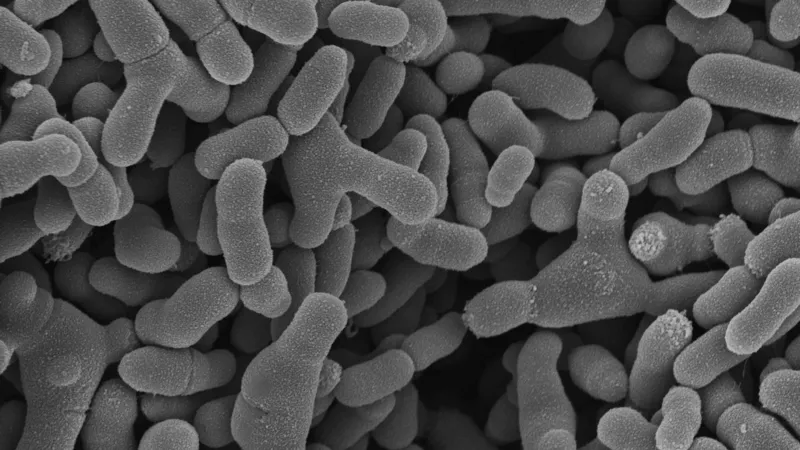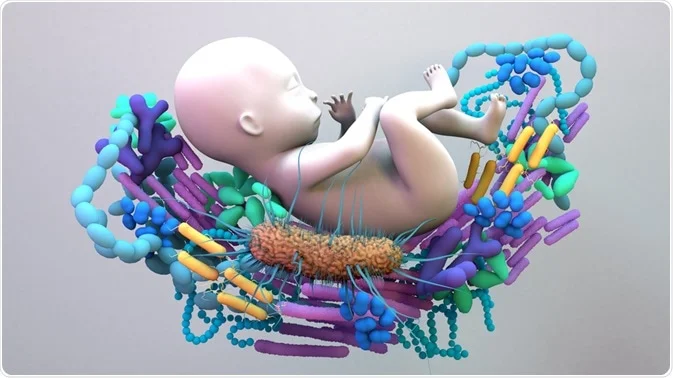The early days of life are a critical period of growth and development, not just for a newborn’s body but also for its microbiome – the unique ecosystem of microorganisms that live in our gut. While there is a growing understanding of how these microbial communities affect long-term health, little is known about the early stages of microbial colonisation in a newborn’s gut. To shed light on this, a group of scientists have undertaken an unusual but important study: analysing the stool of more than 1,200 infants. Their findings could have profound implications for understanding infant health, nutrition and disease prevention.
Study that delves deep into infant stool
Researchers from the Wellcome Sanger Institute, University College London and the University of Birmingham have embarked on an ambitious project to map the microbial landscape of a newborn’s gut. The study involved collecting more than 2,000 stool samples from 1,288 healthy infants under one month of age, all born in hospitals across the UK. Through this in-depth analysis, the researchers found that the gut of newborns can be classified into three distinct microbiological profiles, each characterised by different “pioneer bacteria”.

“We were surprised to find that infant stool falls into three distinct microbiological profiles, each with different types of ‘pioneer bacteria’ in abundance,” explains Dr Yan Shao from the Wellcome Sanger Institute. “This is the first step towards developing effective, personalised treatments to support a healthy microbiome in newborns.”
The three microbial profiles: a diverse start to life
The study revealed that most infant stool samples fell into three broad categories based on the dominant bacterial species:
Bifidobacterium breve (B. breve) dominant group: This profile was found to be particularly beneficial. B. breve is a type of bacteria known for its ability to help infants use nutrients found in breast milk. Preliminary tests suggest that B. breve may also have protective properties, helping to ward off harmful pathogens.
Bifidobacterium longum (B. longum) dominant group: Just like B. breve, this group of bacteria is thought to be beneficial for newborns. It aids in the digestion and absorption of breast milk nutrients and plays a role in establishing a balanced microbiome, which is essential for the developing immune system.

Enterococcus faecalis (E. faecalis) dominant group: Unlike the first two groups, the presence of E. faecalis could be potentially harmful. The study found that babies with higher levels of this bacteria may be at greater risk of infection. Specifically, babies whose mothers received antibiotics during delivery were more likely to have E. faecalis present in their guts. Dr Trevor Lawley, one of the study authors and a researcher at the Wellcome Sanger Institute, said: “By analysing high-resolution genomic information from over 1,200 infants, we have identified three leading bacteria that drive the development of the gut microbiota. This allowed us to group them into distinct infant microbiome profiles.”
What influences the newborn’s microbiome?
The study also looked at the different factors that influence which types of bacteria colonise a newborn’s gut. Surprisingly, whether the infant was fed breast milk or formula had no significant effect on the type of leading bacteria that dominated. This challenges the common belief that breastfeeding is the primary factor in shaping the early microbiome.
However, one important factor that did show an impact was the mother’s administration of antibiotics during delivery. Infants of mothers who took antibiotics were more likely to have E. faecalis as the dominant bacteria. This raises concerns about potential long-term health effects, although further research is needed to confirm any specific results.
Other factors that played a role include the mother’s age, ethnicity, and parity (how many times she has given birth). These factors collectively suggest that the developing microbiome is influenced by a complex interplay of biological, environmental, and possibly genetic factors.

Broader implications of the infant’s microbiome
The gut microbiome is increasingly being recognized for its far-reaching impact on overall health. For newborns, a well-balanced microbiome may set the stage for a healthy immune system, improved digestion, and even a reduced risk of allergies and autoimmune diseases. In contrast, an unbalanced or “dysbiotic” microbiome has been linked to a variety of health problems, from childhood asthma to obesity.
Dr. Ruairi Robertson, a lecturer in microbiome science at Queen Mary University of London who was not involved in the study, emphasizes the importance of this research. “This study significantly expands existing knowledge about how the gut microbiome assembles during the first month of life. We have made significant progress in recent years in understanding how the gut microbiome interacts with the gut microbiome,” he said.
